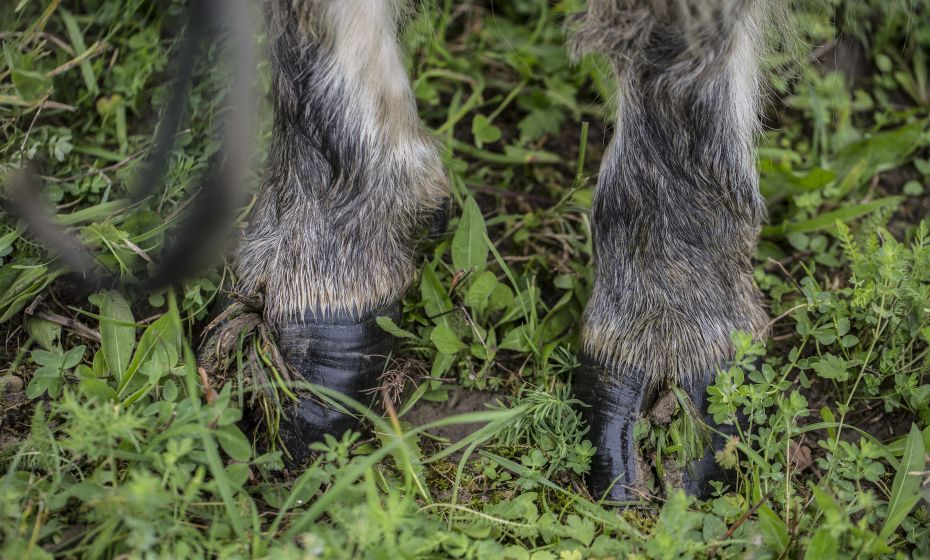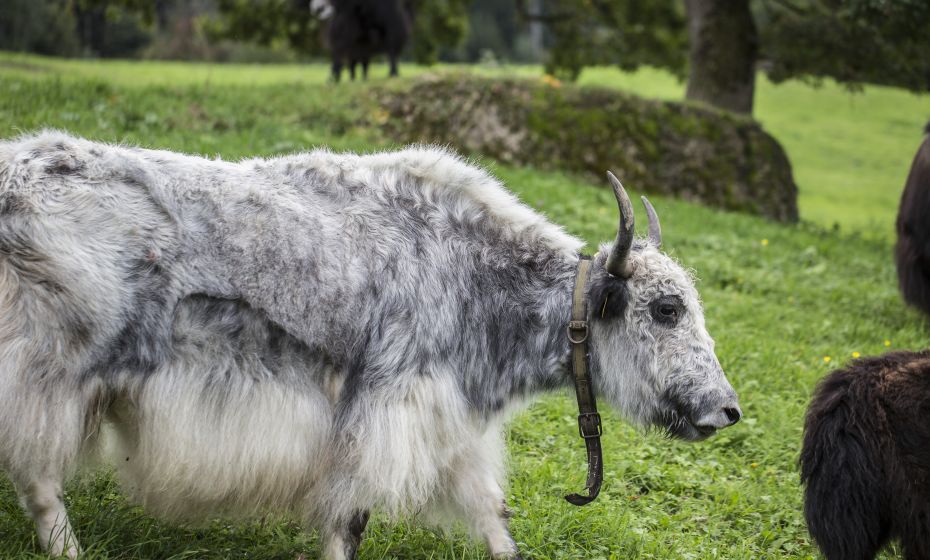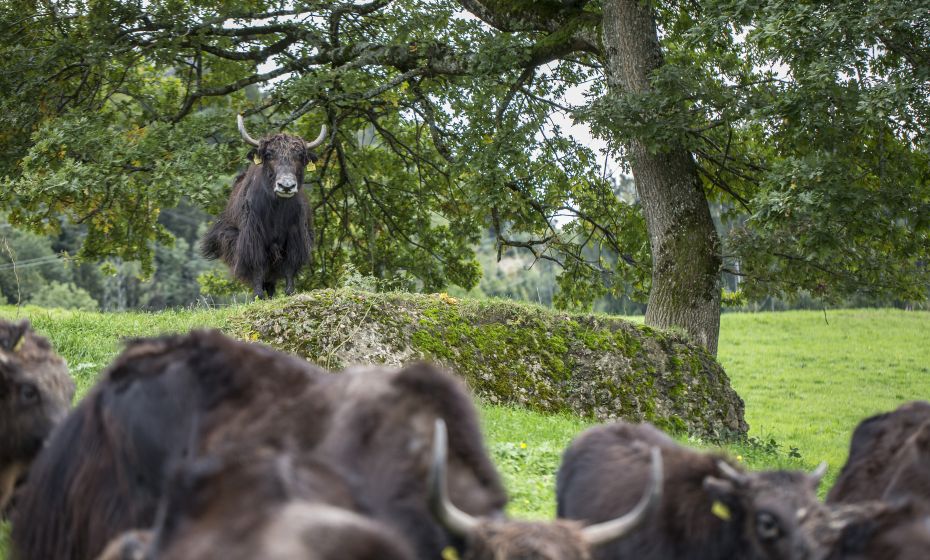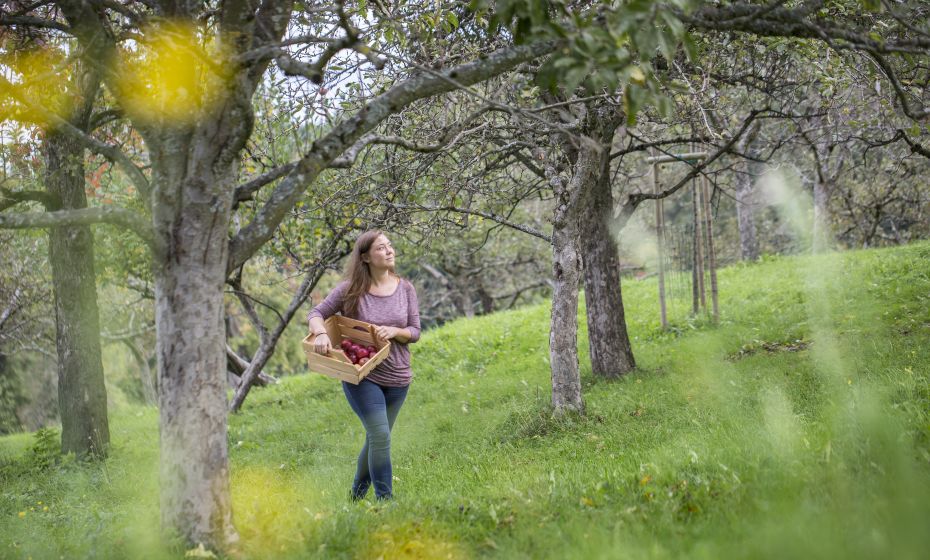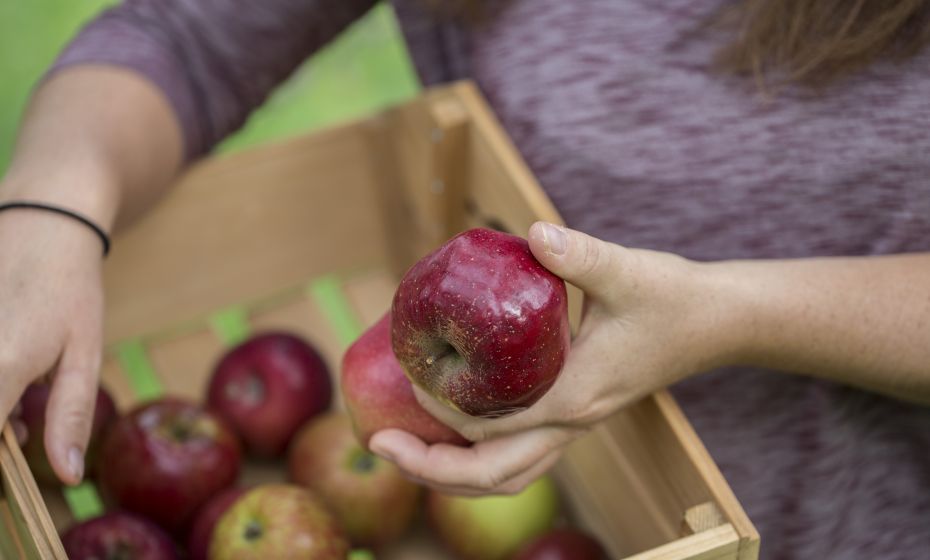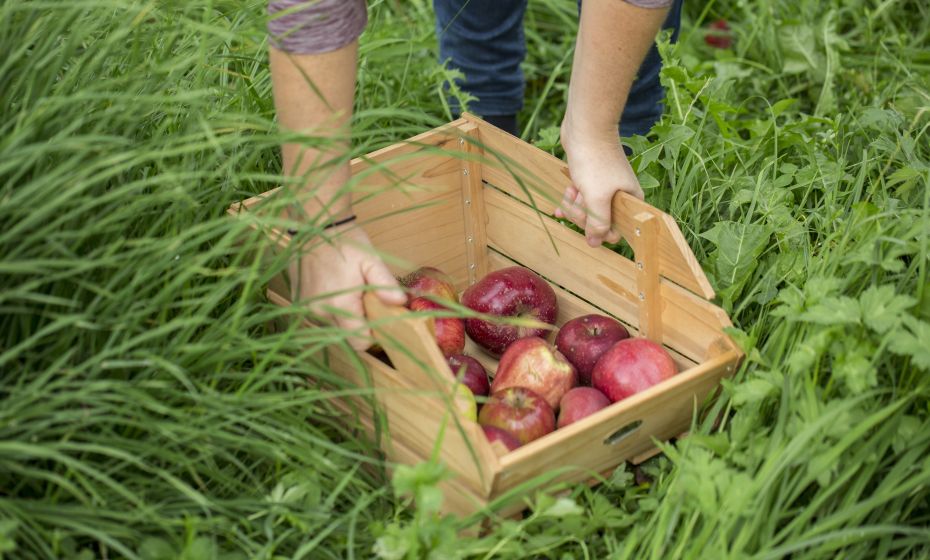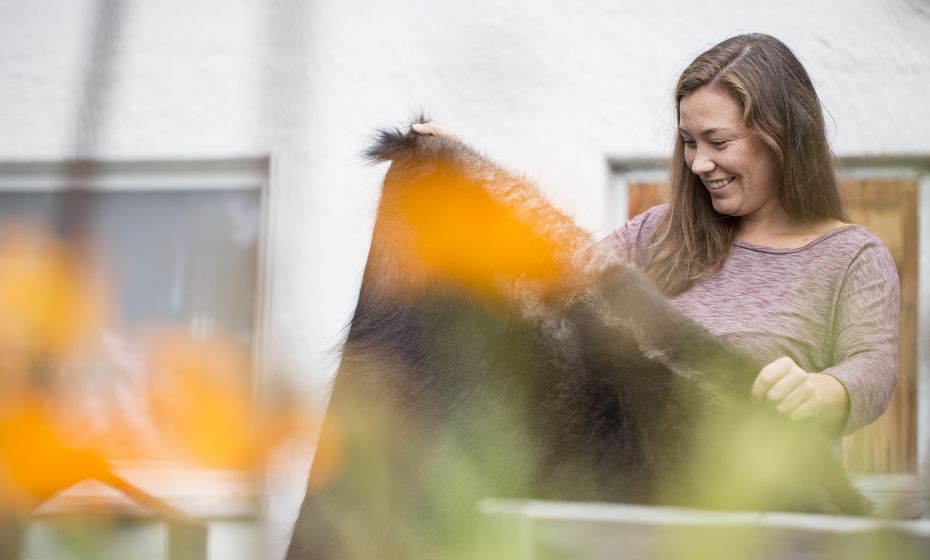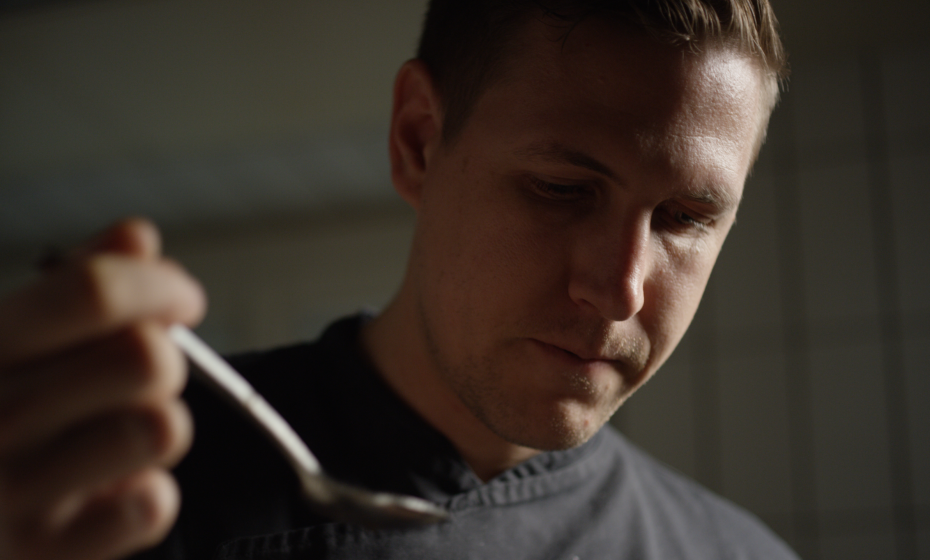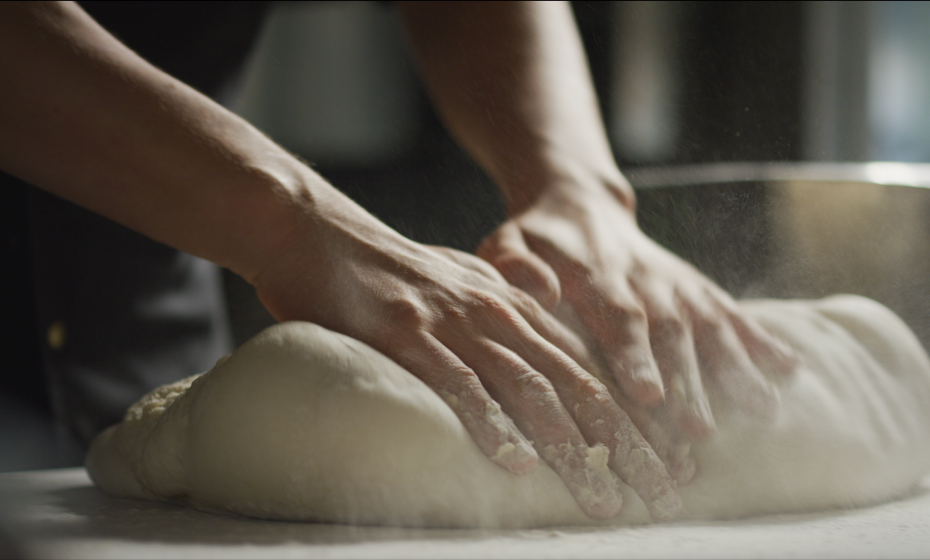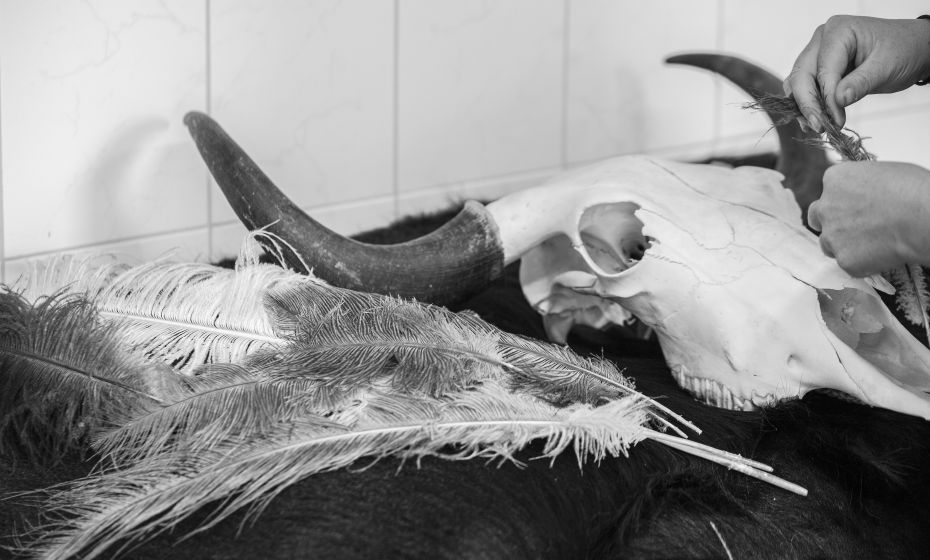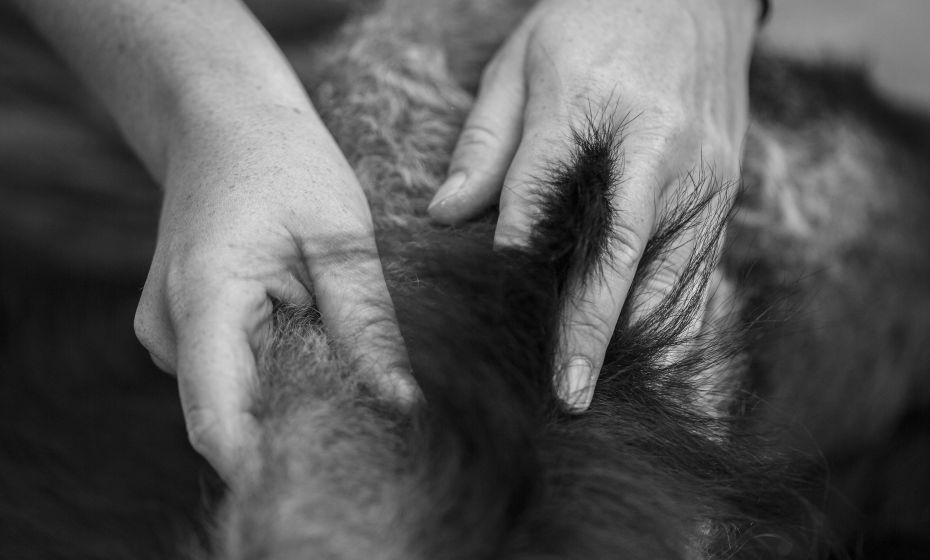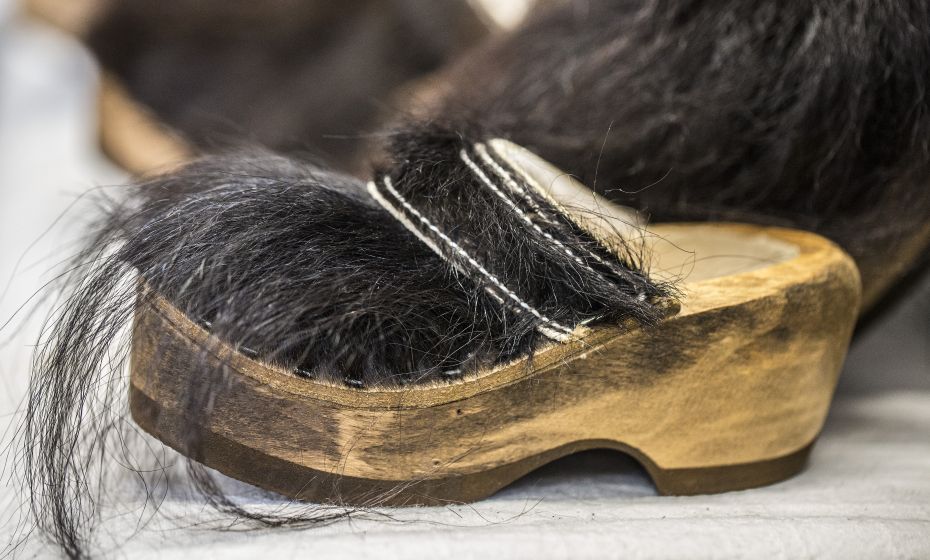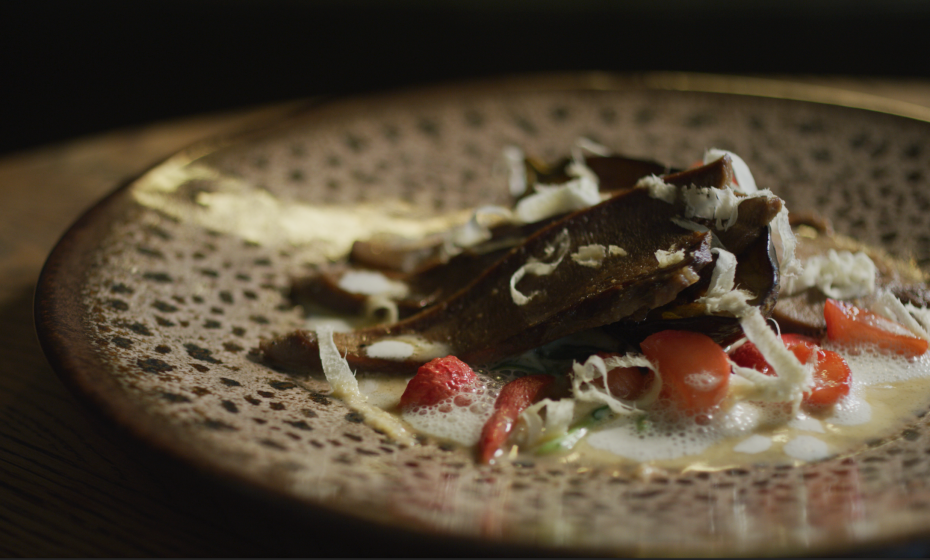The luxurious hillside location above Lochau that boasts panoramic views across the lake has since 2011 been home to a herd of yaks where the animals lead happy lives. Ten cows spend their time with their calves and a proud bull that watches over them on the generous pastures that is Yak Halden. The calves are about three years old when they’re taken on their final journey in a small trailer during which Hohenweiler’s local master butcher takes care that the animals experience as little stress as possible. Jessica Hotz and her partner Lukas Kotvojs have been running the farm for three years and do so in accordance with the principles of self-sufficiency, regional and seasonal farming and ecological production. Besides fine meats, fruit and vegetable products are also sold from the small farm along with skins and yak skulls. Jessica Hotz studied environmental and bio-resource management in Vienna, where she also met and fell in love with her fellow student Lukas. It could be said that the fact that the couple chose a rural way life was a happy accident.
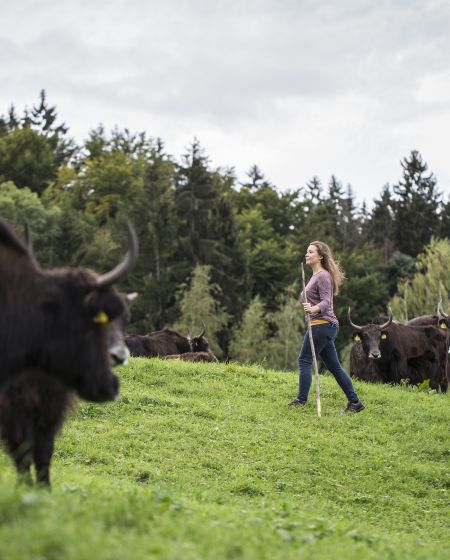
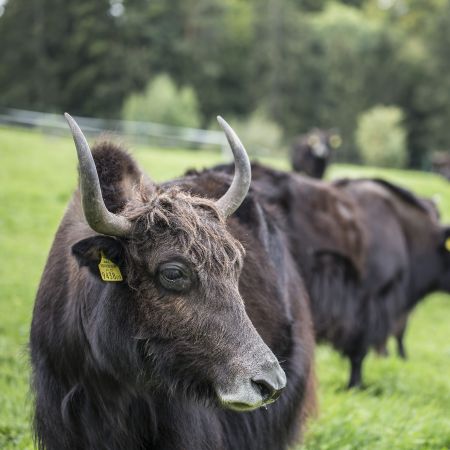
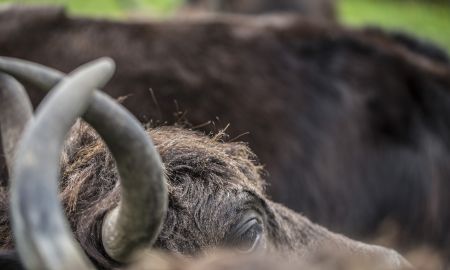
Jessica’s parents had owned a herd of yaks, which they at the time kept at another location in Lochau since 1996. Jessica’s mother and her two brothers remained on the farm after her father passed away after which the young couple decided to convert the loft into their home.
Yaks are well adapted to life at higher altitudes – they are smaller and lighter than domestic cattle and they are therefore less prone to trample and damage the slopes. They are also less choosy when it comes to the types of grass they eat, which means that they’re great for landscape maintenance and much hardier. So they don’t require special attention even when temperatures fall to below zero – they simply need water and somewhere dry to sleep.
The fact that their meat is more than popular is demonstrated by the waiting list of customers – the demand is greater than the small herd is able to satisfy. The farm switched to organic production in January 2019. One person who’s always quick with his orders is Dominic Mayer – the young restaurateur from Wirtshaus Hörnlingen in Rankweil really appreciates the meat from these animals. The two young farmers also share similar approaches to food production with Dominic. For instance, eating meat comes with an obligation to respect the animals by, for example, putting everything that’s edible to good use. Dominic is very rigorous in this regard and his restaurant on Bahnhofstraße in Rankweil has been attracting gourmets since it opened last year.
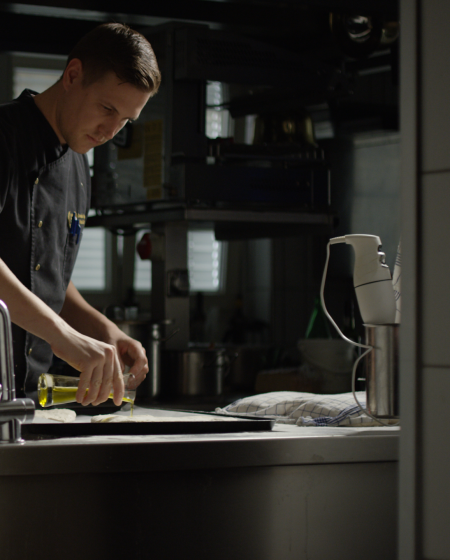
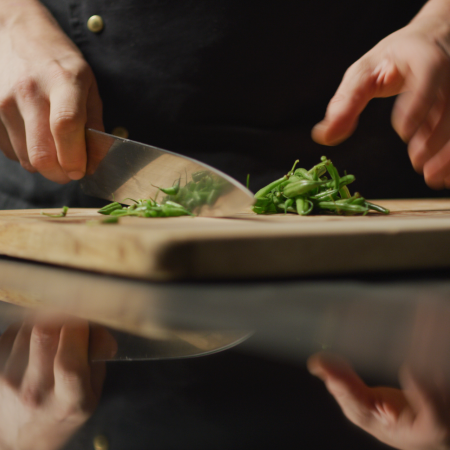
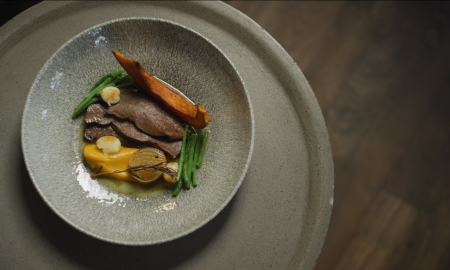
For Jessica and Lukas, buyers like Dominic are a stroke of luck because he is similarly critical of current industrial agricultural practices and shares their conviction that things can’t go on as they are. “We’re wasting way too much food,” she says. “That goes for vegetables but even more so for meat. We’ve become a people of cutlets and fillets with the occasional steak and Tafelspitz (a dish of sliced prime boiled beef) thrown in. It would be best if animals were only made of these cuts because then we wouldn’t have to worry about what happens to the rest of them …”
Both like the fact that a herd of yaks now determines their lives – the farm doesn’t only enjoy a spectacularly beautifully location above the lake, it also serves a large catchment area in spite of its remoteness so that in future a few more animals may perhaps be added to the chickens, the two ostriches and the usual dogs and cats that already live there today.



